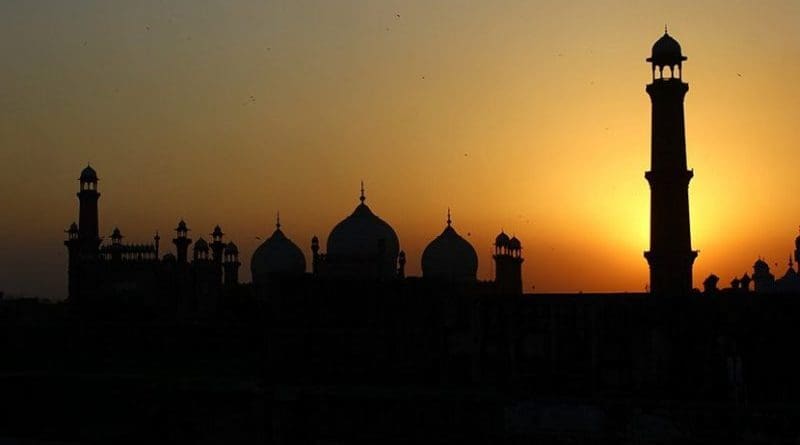Pakistan: 57 Blasphemy Cases Reported In 2023; Two Christian Teenagers Charged, Jailed In Lahore – OpEd
By Kashif Nawab
Two Christian teenagers identified as Adil Baber and Simon Masih have been accused of blasphemy in Lahore, Pakistan. The allegations were leveled against them by the Police constable Zahid Sohail, soon after he had indulged in an altercation with the young accusers on the May 28.
According to the registered First Information Report (FIR) No 902/23, Sohail alleged that the boys uttered blasphemous remarks against the Holy Name of the Prophet Muhammad while he was walking to a mosque for prayer. Adil Baber is eighteen years old, and Simon Masih is fourteen years old.
The families of the accused vehemently deny the allegations, asserting that this is the result of a personal dispute between the two boys and Sohail, as they had a previous altercation. Moreover, the families argue that during the initial confrontation, witnesses present at the scene demanded evidence to substantiate the claims, but none was reportedly provided at the time of the arrest.
While demanding a free trial, the family is urging authorities to address their concerns about the fairness and objectivity of the investigation process, with questions surrounding the potential bias given that the accuser is also a police officer.
As per the statistics shared by the Center for Social Justice (CSJ) and Peoples’ Commission for Minorities Rights (PCMR), at least 57 cases of alleged blasphemy have been registered in Pakistan from January to May 2023. The highest number of blasphemy cases, 28 in total, were reported in Punjab. Sindh followed with 16 cases, while Khyber Pakhtunkhwa recorded eight cases, and Azad Jammu and Kashmir reported five.
Human Rights activist Joseph Jansen and chairperson of Voice for Justice, condemned the incident, adding that the increase in the misuse of the blasphemy laws and its use as a retaliation act to settle personal disputes must be stopped, as numerous people languish in prisons for years until the courts finally realize the miscarriage of justice and set them free.
A fair trial is the right of every citizen guaranteed in the constitution of Pakistan, and the protection of accusers until proven guilty is the responsibility of the state. Jansen further asked for a proactive response from the authorities to safeguard the young boys and their families during and after the legal proceedings, as such fabricated accusations often lead to the climate of mob violence and vigilante justice targeting religious minorities.
Suggesting the government and authorities, Jansen stressed the need for the engagement of all-important stakeholders to set up a platform for the generation of collective wisdom, which can preempt further incidents of this nature.
The Head of Voice of Justice Pakistan also expressed that the authorities should take serious action against individuals making baseless allegations for personal gains over personal vendettas, as the blasphemy laws have a significant impact on religious faith communities, particularly curbing their right to speech, life, and freedom of religion.
Jansen called upon the government to uphold the rule of law and ensure the safety and protection of all individuals, regardless of their religious beliefs.
The 2023 annual report of the United States Commission on International Religious Freedom underscores the increasing helplessness of the religious minorities towards the prosecution and violence that is based on the incorrect blasphemy allegations in Pakistan and reported it as a major contributor to the intolerance for the religious diversity in the country. Blasphemy cases continue to pose a significant threat to religious freedom, often accompanied by mob violence, stated the report
The Commission report also underlines the weaponization of blasphemy laws in Pakistan by the mainstream politicians to gain political mileage against each other’s rivals. The report noted that the new government under Prime Minister Shahbaz Sharif also leveled the blasphemy allegations against former Prime Minister Imran Khan and his cabinet members, to make them a target.
Pointing to the vulnerability of the religious minorities, the report cited the case of Notan Lal as an example, who was the owner and Principal of a school in Ghotki, Sindh, and who was sentenced to life imprisonment for allegedly committing blasphemy. The report also highlights the case of Muhammad Mushtaq, a mentally ill man accused of burning the Holy Quran, who was stoned to death by an angry mob in the Punjab Province. These incidents quoted in the report illustrate the ongoing challenges faced by religious minorities last year and stressed the need for the greater protection of religious freedom in Pakistan.
Human Rights Defender Zara Amoon Gill, noted the increase in the misapplication and inappropriate use of this law as a tool to suppress marginalized sections of the society by radicals clearly reflects upon the rising extremism in the country.
Responding to the documentation and reporting of such cases by the global Human Rights watchdogs, she urged the authorities to wisely respond to this pressing issue with considerable and proactive measures, by using both of ideological and repressive state apparatuses to further develop a softer image of the country on global fronts.
In addition, Gill suggested that a collective effort is required to overcome the challenges that are erupting due to the raging extremism in the nation. We all as citizens share equal responsibility to play our individual role for social change, she said.
“As a responsible and tolerant citizen, we must discourage the social injustice rooted in radicalism and leading to anarchism”, Gill said.
According to data collected by the Center for Social Justice, since 1994, at least 92 individuals have lost their lives in incidents related to religious offenses. Among the victims, 50 were Muslims, 23 were Christians, 14 were Ahmadis, two were Hindus, one was Buddhist, and the religious affiliation of two other individuals could not be determined. These statistics shed light on the ongoing prevalence of blasphemy accusations and the grave consequences that they can have on individuals in Pakistan.
Kashif Nawab is a Director with Social Action Transformation of Humanity (SATH) in Pakistan.

